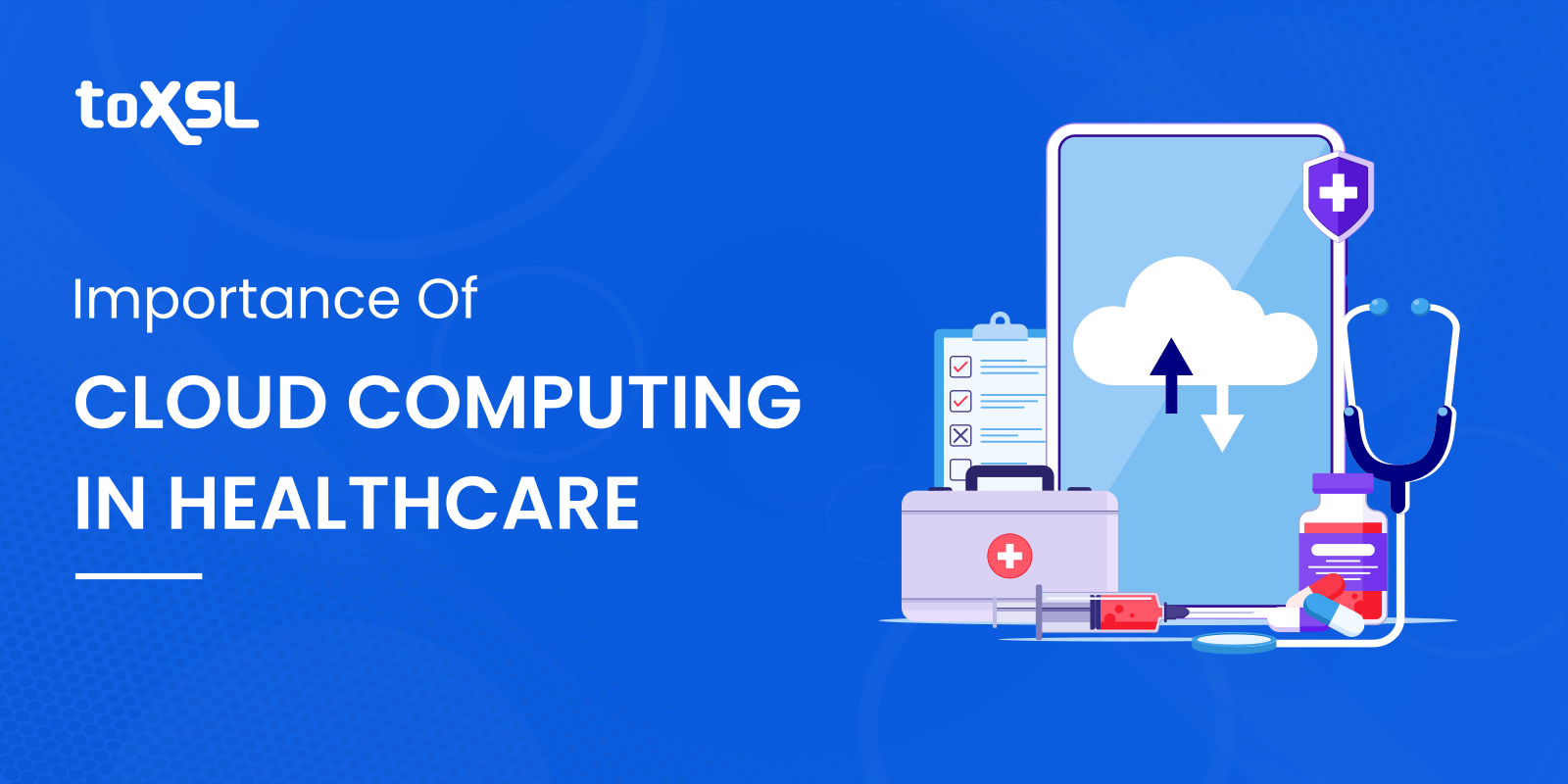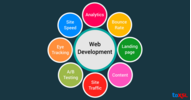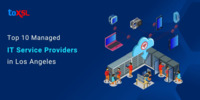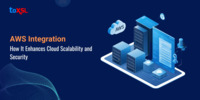- Apr 28, 2022
Share this post on:

From conventional healthcare practices to digitalization in healthcare, we have come a long way, and the change continues. During the pandemic, the entire population got dependent on healthcare, and there was this huge crowd and the patient data.
But thanks to the IT infrastructure and cloud computing that allows every institution and healthcare to reap the benefits. Cloud system offers advantages like improved privacy, low expenses, more patient care via remote operation, improved collaboration, and more.
A report from Mordor Intelligence depicts that the cloud computing market will reach a whopping value of $71, 730.64 million by 2027 with a CAGR of 14.12 percent. Also, research from Statista depicts that cloud adoption has risen at a 74% rate in recent years.
The blog post covers the details while analyzing the importance of cloud computing in the healthcare industry, how it supports patient care, challenges, and reduced costs.
Cloud Computing and the Healthcare
The healthcare industry handles a significant amount of data every day, and cloud computing is all about using remote servers to streamline the process. It helps store, manages, handle, and process medical information with ease.
Cloud computing in healthcare offers the most cost-effective and easily deployed results that prove to be of massive use. The healthcare industry now embraces cloud-based solutions and helps save the patient's data and their records simultaneously.
But how does Cloud Hosting do that? Well, to get the answer to all queries, let’s dig deeper and know the benefits of introducing the cloud in healthcare.
Benefits of Implementing Cloud in the Healthcare
To address the patient's needs, healthcare is shifting its paradigm toward cloud solutions. The key benefits of cloud computing are as follows.
1. Offers Robust Solutions that save all your data
Healthcare experts stimulate a massive amount of data daily and it including the patient record, health insurance, EMR, prescriptions, and more. With the advent of cloud technology, it becomes easier to handle such data more efficiently. Cloud computing streamlines the data processing and has built analytics tools that offer anytime results for the administration.
2. Boosts the Patient Experience and Care
With the real-time analysis from the cloud, doctors can offer better patient care involvement and medical information. It allows patients to maintain their health more precisely as they are more updated. Cloud helps democratize the data and gives patients complete control over their health. It leads to a rise in patient participation and ultimately helps them make informed decisions.
3. Increased Collaboration
With increased sharing, the collaboration rises too. As the process of data sharing is streamlined, there is improved collaboration between the doctors, departments, and patients. Healthcare information needs to stay confidential, and it is only possible with the cloud. The data is shared with the appropriate stakeholders in real-time.
Apart from sharing, it allows you to access the data remotely no matter where you are. Cloud facilitates remote conferencing and provides instant updates on the healthcare, condition of patients, and a lot more.
4. Improved protection from Data Loss
With the remote cloud deployment, you can back up the information with ease, protect the system from malicious attacks and data hijacking, and protect all your crucial patient information in a centralized system.
5. Access to New Telehealth Capabilities
Healthcare providers are turning to telehealth which makes the connection easier with them even if they are at their home. So healthcare institutions are migrating to the cloud that allows patients to easily access their telehealth services, schedule visits, pay for them, access test results seamlessly, and a lot more.
6. Reduced Cost
It is one of the most crucial benefits the cloud offers. It can hold on to an enormous amount of data at a very minimum cost. It works on the pay-as-you-go model, which means you only have to pay for your services. So no matter if you are looking for appropriate solutions for a small hospital with a tight budget or a large one, the cloud-based solutions can be availed by everyone.
Healthcare Models you must know
The healthcare business model has two viewpoints. These include deployment and distribution.
1. Distribution Model
-
SaaS (Software as a Service) The service providers offer IT infrastructure and allow the clients to deploy apps and operating systems.
-
IaaS (Infrastructure as a Service) The service provider offers an operating system and IT infrastructure.
-
PaaS (Platform as a Service) The service providers offer apps, operating systems, IT infrastructure, and other elements.
2. Deployment Model
Community: It allows the community with a specific group and preferences to use the preferred technology. Can be categorized into private, hybrid, or public.
Challenges the Healthcare sector faces in implementing Cloud
1. Security Challenges
It is one of the biggest setbacks to adopting cloud in the healthcare. The security risks associated with cloud adoption are there. Patient data is sensitive, and cloud-based healthcare must work to safeguard it against threats. To overcome these challenges, healthcare organizations must ensure data encryption, and use security keys to access.
2. Restricted Ecosystem
The only acceptance of cloud solutions in healthcare cannot make the whole industry productive and efficient. To reap the benefits of this technology, healthcare organizations need to use Artificial Intelligence, the Internet of Things, and Data Management technologies.
3. System Downtimes
While the cloud offers more reliability and occasional downtime is another risk associated. Robust planning beforehand and preparation for the failure reduce the risk and help you overcome any downtime. Design for failure is advocated as a best practice while you build cloud applications.
Overcoming challenges to applying Cloud Computing in Healthcare
Cloud computing is a multifaced process and requires a genuine collaboration between healthcare organizations and technology providers. Businesses must decide on their objectives, list the things why they are looking for a switch, know their investment, and follow appropriate measures.
Closing-Words!
Cloud Computing implementation in healthcare is shaping the industry and has a long way to go in the healthcare sector. From cutting down the cost to saving the data and enhancing collaboration, it offers many benefits.
ToXSL has a team of professional experts offering cloud computing services and has over a decade of experience. Hire us as your healthcare app development company, leverage the modern technologies, and gain the benefits!











